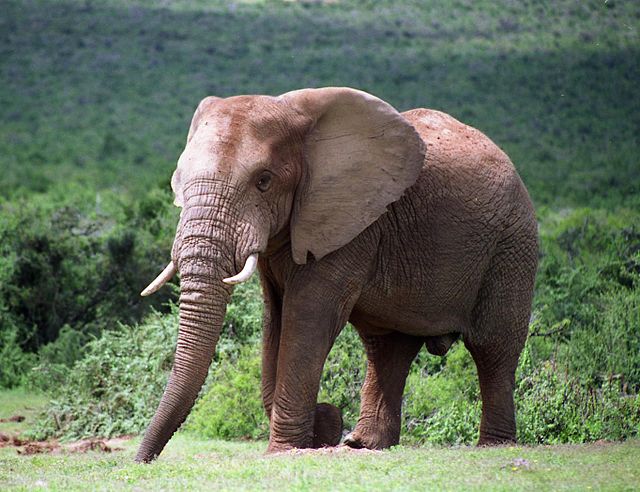
Nestled in the Eastern Cape of South Africa, Addo Elephant National Park is a haven for wildlife enthusiasts and nature lovers. Spanning over 1,640 square kilometers, this remarkable park is home to a diverse range of flora and fauna, with the iconic African elephant being its star attraction. Established in 1931 to protect the remaining elephants in the region, Addo has since expanded to encompass a variety of habitats, making it one of the most diverse national parks in South Africa. This blog post will take you on a journey through the park’s history, its wildlife, activities, and practical tips for visiting.
The History of Addo Elephant National Park
The origins of Addo Elephant National Park date back to the early 20th century when the population of elephants in the area was drastically declining due to hunting and habitat destruction. In response, a small section of land was proclaimed a national park in 1931 to protect these magnificent creatures. Over the years, the park has grown significantly, absorbing neighboring farms and land to create a sanctuary for not only elephants but also a myriad of other species.
The park’s conservation efforts have been widely recognized, and it now plays a critical role in preserving South Africa’s unique biodiversity. Addo Elephant National Park is part of the larger Greater Addo Elephant National Park, which includes marine areas, offering a unique blend of terrestrial and marine ecosystems.
The Wildlife of Addo
Addo Elephant National Park is renowned for its impressive population of African elephants. Currently, the park is home to over 600 elephants, making it one of the best places in the world to observe these gentle giants in their natural habitat. Visitors can expect to see elephants of all ages, from playful calves to majestic adults, often seen gathering at waterholes and roaming the expansive grasslands.

Other Wildlife
In addition to elephants, Addo is home to a variety of wildlife species. The park boasts the “Big Five”: lions, leopards, rhinoceroses, elephants, and buffalo. Although leopards are elusive, sightings can occasionally occur. Addo is also known for its impressive population of Cape buffalo and is one of the few places where you can see the critically endangered black rhinoceros.

Birdwatchers will be delighted by the park’s avian diversity, which includes over 300 bird species. Look out for the iconic African ostrich, the majestic African fish eagle, and the colorful lilac-breasted roller. The park’s varied habitats, from dense thickets to open grasslands, provide perfect nesting and feeding grounds for these birds.
Unique Flora
The flora of Addo is just as fascinating as its fauna. The park is home to a variety of ecosystems, including dense thickets, open savannahs, and coastal forests. The unique Addo Elephant bush, or spekboom, is particularly notable; this succulent plant plays a crucial role in carbon sequestration and offers food for many herbivores.
Activities in Addo Elephant National Park
Addo Elephant National Park offers a wealth of activities for visitors, ensuring that everyone can experience the beauty of this unique landscape.
Game Drives
One of the most popular ways to explore the park is through guided or self-drive game drives. The park’s well-maintained roads provide access to various habitats, allowing visitors to witness the incredible wildlife up close. Guided drives often come with knowledgeable rangers who can offer insights into animal behavior and ecology.
Walking Safaris
For those looking for a more immersive experience, walking safaris are available. Accompanied by trained guides, visitors can venture on foot into the park’s wild heart. This allows for a unique perspective on the environment, including tracking animals, learning about plants, and experiencing the sounds and scents of the bush.
Birdwatching
With its diverse ecosystems, Addo is a birdwatcher’s paradise. Birding enthusiasts can explore various trails and lookout points to spot both common and rare species. The park also offers specific birding tours led by experienced guides who can help identify and provide information on the park’s avian inhabitants.
Cultural Experiences
The Eastern Cape is rich in cultural heritage, and Addo Elephant National Park offers opportunities to engage with the local communities. Visitors can participate in community tours that showcase traditional Xhosa culture, including music, dance, and craft demonstrations.
Marine Activities
As part of the Greater Addo Elephant National Park, visitors can also explore marine life along the coast. The nearby Addo Elephant National Park Marine Protected Area includes the Algoa Bay, where activities like whale watching, kayaking, and diving can be enjoyed. The area is known for its rich marine biodiversity, including dolphins and seasonal whale migrations.
Accommodations
When it comes to accommodation, Addo Elephant National Park offers a range of options to suit every budget and preference.
Rest Camps
The park features several rest camps, including Addo Main Camp, which offers comfortable chalets, camping sites, and various amenities such as a restaurant and shop. Other options include Nyathi Rest Camp and Matyholweni Rest Camp, both providing unique experiences and easy access to game viewing.
Luxury Lodges
For those seeking a more luxurious experience, a number of private lodges and safari camps are located near the park. These lodges often provide all-inclusive packages that include guided game drives, fine dining, and spa treatments.
Practical Tips for Visiting Addo Elephant National Park
Best Time to Visit
Addo Elephant National Park can be visited year-round, but the best time for wildlife viewing is during the dry months from May to September. During this period, animals are more likely to gather around water sources, making them easier to spot.
Entrance Fees and Permits
Visitors should be aware of the entrance fees, which can vary based on the type of vehicle and the number of passengers. It’s advisable to check the official SANParks website for the latest information on fees and permits.
Safety Precautions
While Addo is a relatively safe national park, it’s important to adhere to safety guidelines. Always stay inside your vehicle during game drives, keep a safe distance from wildlife, and never feed or approach animals.
What to Bring
Packing for your trip is essential. Consider bringing binoculars for wildlife viewing, a good camera for capturing moments, sun protection (hats, sunscreen), and plenty of water. If you plan to self-drive, a detailed map of the park can be helpful.
Conclusion
Addo Elephant National Park is a true gem of South Africa, offering a unique blend of wildlife experiences, breathtaking landscapes, and rich cultural heritage. Whether you are an avid wildlife enthusiast, a casual traveler, or someone seeking adventure, Addo has something to offer everyone. With its remarkable conservation efforts, stunning biodiversity, and a variety of activities, Addo Elephant National Park is a must-visit destination for anyone looking to connect with nature and experience the beauty of the African wilderness.
Embark on your journey to Addo, and immerse yourself in one of South Africa’s most extraordinary natural treasures!

